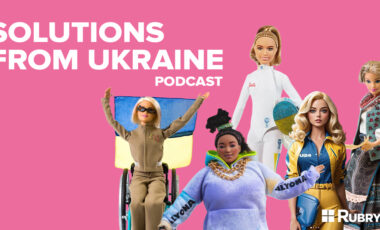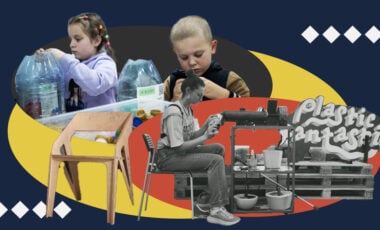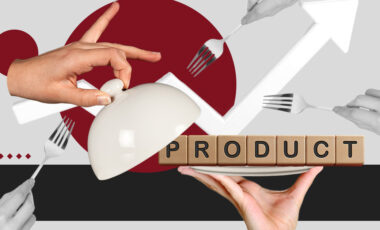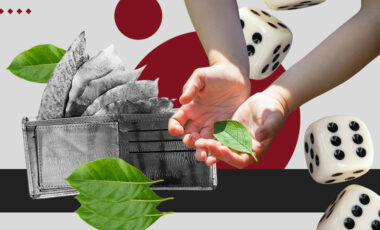Plastic pandemic: how has quarantine affected waste management?
In Ukraine, waste has become more extensive in volume, but not in weight. It will surprise you: masks and gloves didn't affect the situation as much as we thought
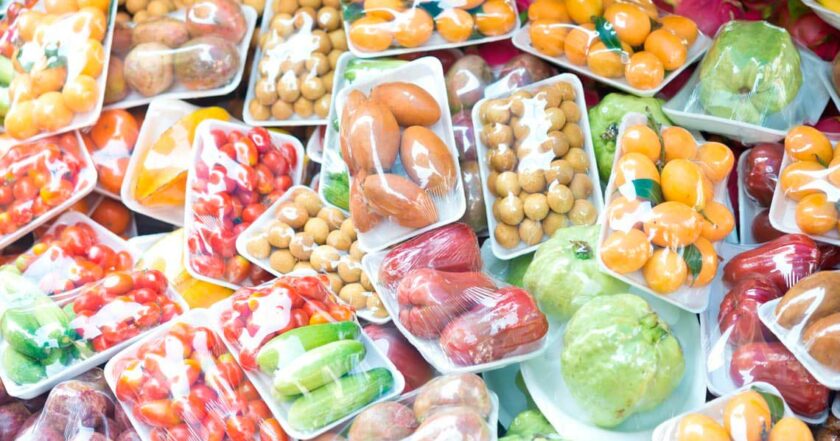
The quarantine introduced in response to the coronavirus pandemic in March is still formally ongoing. But the nature of quarantine measures has transformed. Adaptive quarantine and certain restrictions are nothing compared to the first two months of the pandemic when long-distance connections and public transport in cities were suspended and food establishments closed.
It is during this period, from March to May, that not only our daily lives have changed the most but also the amount and composition of garbage that we produce. Zero Waste Lviv NGO in partnership with Ekoltava NGO, Fama Research Agency, and Zero Waste Europe International Union, with the support of the international foundation "Renaissance" and the Swedish Embassy in Ukraine, conducted research and analyzed how quarantine affected waste management.
Mass is consistent but volume increases
A study conducted in 4 Ukrainian cities, Lviv, Poltava, Truskavets, and Myrhorod, showed that the expected nature "cleansing" didn't happen in the quarantine. Even despite restaurants and shopping malls closing, waste in cities hasn't decreased significantly. For instance, in Lviv, the amount of garbage in the city center decreased by 60% but increased by 30% in other city districts. The only exception is Myrhorod, where the amount of waste has decreased by 40% because of the sanatoriums closing.
Meanwhile, in the no less resort Truskavets, the total amount of waste remained almost the same. It happened because of the growing amount of waste from the population, and, especially, large and construction waste. We observe the same pattern in other cities where the study was conducted. 2 months of around-the-clock sitting at home forced Ukrainians to review the contents of their homes, carry out overall cleaning and get rid of junk. Usually, people don't have enough time for this.
Therefore, the total mass of waste remained almost the same. When Poltava took out only 6809.6 tons of garbage in March, in April, the figure was 5947.9 tons, in May, it was 6185.4 tons. A similar situation is observed in Lviv: an increase in organic and construction waste from citizens offset the decrease in waste from the tourism and hotel and restaurant sector.
Individual protective gear, which has invaded our lives, has had almost no impact on waste. In the cities where the study was conducted, they created no special infrastructure for their utilization. First, because of such a system's cost and the difficulty of communicating information to people. Second, due to the lack of doctors' recommendations. Local authorities abode by studies showing that the virus survives on the surface of protective masks or gloves for 6 to 72 hours, and couldn't cause significant damage when entering a landfill. Myrhorod became the only city where they centrally collected, processed, and disposed of such waste. But in none of the cities did personal protective gear affect the total waste mass.
But the total volume of garbage during the quarantine increased, although the total mass decreased slightly. Carriers say it's due to an increase in plastic, wrapping, and paper, having low weight, and taking up a lot of space. Since they clean out garbage cans as they are filled, garbage had to be removed more often during the strict quarantine. Interviewed retailers and restaurant business representatives confirm this thesis: "The change in [customers'] behavior has been in security direction. A person still prefers something individually packaged in most cases if he/she sees it. Two or three years ago, we had a trend when people started walking with their reusable coffee cups, or their bags, or their containers. It is very difficult to keep track of it now," a representative of the Lviv restaurant chain says.
Deep problems
The study is interesting not only because it showed changes in the overall waste structure during the pandemic, but also because it showed the prevailing trends and challenges in waste management in the country.
First, although in each of the cities there was an infrastructure for separate waste collection in one form or another, strict quarantine has led to a reduction in the number of recyclables. Recycling points weren't included in the list of business entities that were allowed to work during the quarantine. So only a small part of the population continued to sort and collect waste at home. Only unregistered points continued to operate. Quarantine illustrated the lack of precise regulation and supervision of this field by the state.
Second, the example of only 4 cities shows how different the local authorities' approach was both to the actual introduction of quarantine and to regulating waste. The global pandemic came to Ukraine when there was no legal structure for waste management. At that point, they registered only a law draft in the Verkhovna Rada. Local authorities simply didn't have explicit instructions or even an understanding of what they need to do to respond adequately to the growing amount of waste in such a special situation.
Third, the lack of clear rules and recommendations from both central and local authorities has led to misunderstandings in running retail and catering establishments. When restaurants were banned to serve visitors, delivery services experienced a real boom, resulting in an increase in non-recyclable disposable packaging waste. The requirement to pack vegetables in supermarkets was almost the most controversial, as scientific studies have shown that the virus survives on a plastic surface the longest.
The lack of communication with the population and the retail sector has led to a turnaround in the trend of reducing waste to the opposite urge to buy only what has individual packaging. And while individual restaurants or shops have tried to counter this and encouraged customers to choose reusable or biodegradable tableware, the local or central government has hardly raised this issue. We don't have enough basic data to understand this problem. Cities collect information only about the total mass of waste removed, without examining their morphology. It shows that issues of waste management or other environmental issues are still out of sight of Ukrainian officials of various levels.
How to stop the plastic pandemic?
After analyzing the data collected, activists have developed several recommendations that will help reduce the amount of residual waste during a pandemic or similar emergency.
They recommend supermarkets, restaurants, and other catering establishments to follow these tips:
- Allow and encourage the use of reusable utensils. After thorough washing, even by hand, such utensils remain completely safe for users, and you don't produce waste.
- Allow selling food without packaging. According to the results of many studies, there are a lot of fingerprints left on the packaging the food is wrapped in. Before this package reaches the customer, many people can touch it, and since the virus lives on plastic for almost the longest, it makes no sense to pack food and create even more waste.
- Encourage visitors to use their own packaging. When a person orders coffee in their own cup, it reduces the chances of transmitting the virus greatly. Disposable cups can lie in the open for a long time and go through many hands, which makes them more dangerous than an environmentally friendly alternative.
They recommend the following steps to local authorities who want to reduce the impact on the environment during quarantine:
- Ensure uninterrupted collection of organic waste from businesses and individuals, and establish and/or improve the collection of secondary raw materials from businesses and individuals.
- Improve the data collection on municipal solid waste (MSW) generated in the city, in particular, regarding the volume and mass of waste produced by waste creators, collect separate data on the population and business. Gather data on collected secondary raw materials by fractions and morphological composition of MSW from different creators, etc. Ensure data openness.
- Ensure uninterrupted running of recycling points. People have limited contacts in such points and closing them damages the overall waste management system.
- Expand the common infrastructure for separate collection of household, bulky, and hazardous waste. If there is a well-functioning system in cities with separate containers for each house, even a pandemic won't cause any problems.
- Conduct information campaigns for residents of cities and towns. The more people are aware of the waste issue, the greater result we will achieve. And if emergencies such as a pandemic make adjustments to the waste management system, well-established communication will help to adapt to new circumstances more effectively.
As for personal protective gear, both restaurants and local authorities, and each of us can do better for the environment if you follow these tips:
- Use reusable masks in the absence of ARVI symptoms. It doesn't mean that you can still wear the same mask you received in March. But instead of using a new mask every day, you can wear several tissue masks and regularly disinfect them.
- Don't use disposable gloves. Instead, wash or disinfect your hands more often and don't touch your face (including in gloves). The chance of contracting the virus doesn't increase, and the amount of waste produced decreases.
- Dispose of personal protective gear as ordinary waste. Unfortunately, we can't do anything better at the moment. By tying the masks tightly in a bag and waiting a few days, you will reduce the possibility of the virus spreading from the surfaces of this gear to nearly a zero, and you will know for sure that no one will reuse them.



























